Selected poems of Shamim Reza: An overview
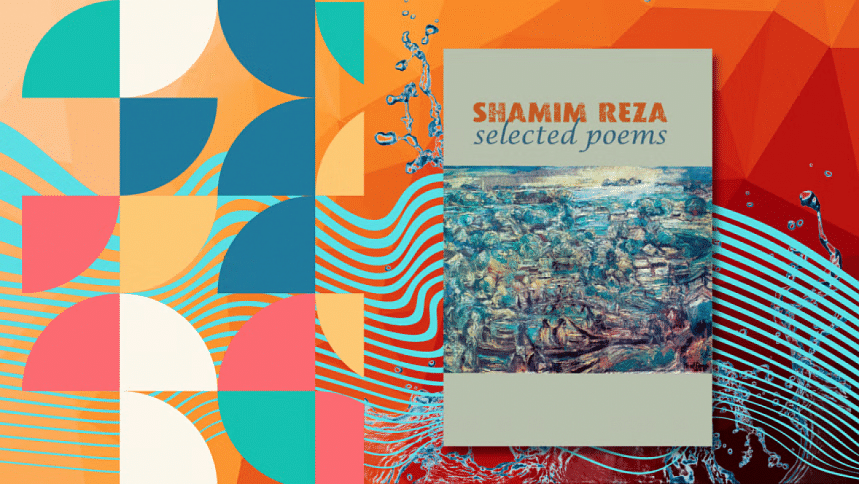
Shamim Reza (born 1971), a poet and a professor of literature, has already carved out a niche for himself in the burgeoning Bangladeshi literary arena, especially in the field of poetry. Of course he writes in Bangla, but the good thing is that a nice-looking collection of his selected poems in English translation had been brought out a couple of years back by the prestigious ULAB Press. I was fortunate to get a complimentary copy, which caught my attention immediately, as I knew the poet personally and was somewhat aware of his poetic diction, and hence was eager to experience his poems in a foreign yet familiar language.
I discovered two names inscribed on the cover as translators, namely Dulal Al Monsure and Mahbub Siddiquee. However, nowhere in the book is it mentioned who translated which particular poems or whether they translated the poems jointly. Nevertheless, I continued my exploration and found out that the translator-duo translated nearly two hundred poems, carefully culled from the poet's eight poetry anthologies, which also included a complete book of longer prose-poems titled Brahmander Ishkool (School of the Universe) along with an assortment of fifty love couplets from another book named Shamimer Padabali (Shamim's Padabali).
The book is further adorned with a well-articulated preface by John Farndon of London; a scholarly blurb written by Enrique Bernales, poet and professor at the University of Northern Colorado, USA; and a brief back-cover testimonial by the Swedish poet, Arne Johnsson. These writeups rightly point out the unique literary features of Shamim's innovative and experimental poetry, along with the emotions and ethos they convey. This in a way prepares the readers to dive into the poetic realm of Shamim with the right mindset required to appreciate the richness of his linguistic treasure and the complexity of his multilayered poetic landscape.
Understandably, the book is arranged chronologically, opening with the poems from the first book, Patharchitre Nadikatha (Rivers Inscribed on Stone), and closing with the poems from his latest book, Shamimer Padabali (Shamim's Padabali), published in the year 2019. And guess what—the very first poem of this anthology, "Porani and the River Bodhusara", greeted me with the shock and jolt of an uncanny sensibility when I heard the poet pronouncing: "I am blue-throated Shiva in love; / My throat is pierced with poison; the stony palace has / exhausted me..." I instantly knew that here the discerning readers were in for a very different kind of poetic experience, being offered by a poet who was both classic and contemporary at the same time.
Take, for example, the following few lines extracted from a poem called "Jerusalem", included in his 2004 publication, Nalanda, Dur Bishwer Meye (Nalanda, the Daughter of the Ancient World), which sounds uncannily contemporary, even today after twenty years of its publication: "The burning smell of Jerusalem / and the last cry of the newborn babies / stream down through my blood. / I salute you, the sky, the remote world, / roots, leaves, branches, / the green semen of grass / smashed under the tank, / or even everlasting time." The whole book is replete with such instances where memorable poetic pronouncements, evocative images, insightful expressions, and intelligent, pithy phrases embrace us and soothe our restless mind. Here is another such exhilarating example: "I shall rather be the twilight, than the setting sun / some memories are like twilight, revealed to none." (Shamim's Padabali)
Before concluding, I would like to quote from a long and lovely prose poem which is included in his book, titled Brahmander Ishkool (School of the Universe), published in the year 2009. I must say that the translators did a wonderful job in retaining the universal and epical undertone of the original Bangla in the following stanza: "On the other hand, a white rabbit, coming out of the secret monastery of loyal willow-warbler, still now seemingly goes on speaking in favour of peace and of the dreams of the dead guerillas, and I think of the senses of the insects that live on pollens of flowers. Am I the same person, who, before the appearance of the celestial sphere or after the destruction of the whole creation, was or will be standing with a light in the endless wilderness?"
The only limitation of the book, in my humble opinion, seems to be the absence of a poet's preface, and a translators' note, which is rather mandatory for such anthologies, where the translators are expected to share their thoughts on translation as a literary genre along with their actual translation process and the methods employed. Hope the publisher will address this during their next imprint.
Alam Khorshed is an Engineer-turned-writer, and is predominantly a literary translator. Author of 25 books, Alam Khorshed received the Bangla Academy award for translation in the year 2022.

 For all latest news, follow The Daily Star's Google News channel.
For all latest news, follow The Daily Star's Google News channel. 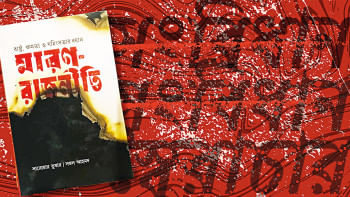

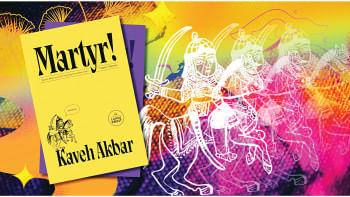




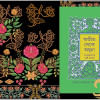



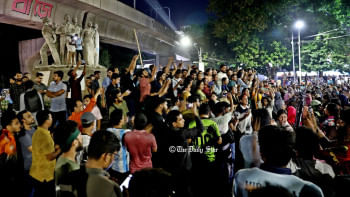
Comments